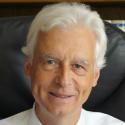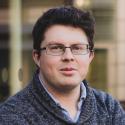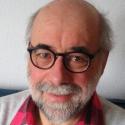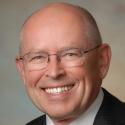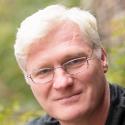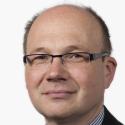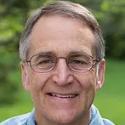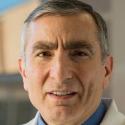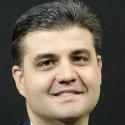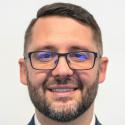2021 Scientists Network
- Image
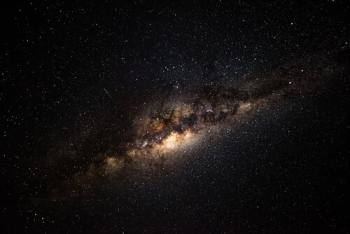
The European Science Network is committed to two main purposes: (1) Increase the praise of God the Creator-Saviour through what humans study and know in His creation (Col 1:16) and (2) Put scientific findings in the context of His Word so that what we know about His creation will not obfuscate our knowledge of Himself (2 Cor 10:5).
In order to achieve its purposes, the European Science Network is geared to serve two kinds of audiences: (1) Scientists and Christians interested in science will obtain the knowledge, language, and courage to do science and speak about science within the framework of a Bible-informed Christian understanding of the cosmos. (2) Christians of all backgrounds will be helped to understand and interact with scientific findings and claims in a way that is truly apologetic, integrating scientific facts into the Christian worldview in an affirmative, active way rather than only defensively and reactively. At the same time, the demarcation lines will be demonstrated between scientific facts and their interpretation by naturalistic vs. Christian worldviews. We do not shy away from sensitive subjects like the evolution debate and ethical implications, engaging in constructive, respectful discussions.
Applicants should be involved in full-time scientific work or have a strong interest and background in the integration of science and Christianity.
Network Leadership
Network Speakers
Zachary Ardern is a research fellow in microbial evolutionary genomics - investigating the origins and evolution of proteins and gene regulation. He completed BA|BSc conjoint degrees and a PhD in experimental evolution at the University of Auckland, New Zealand and has subsequently conducted… Read more
Harald Binder is a passionate and inquisitive scientist (chemist). After a three-year period working as a teacher of chemistry and biology at a secondary school, he now works with the Christian organisation Studiengemeinschaft Wort und Wissen doing research and giving lectures. His topics of… Read more
Wayne Grudem is Distinguished Research Professor of Theology and Biblical Studies at Phoenix Seminary in Arizona. He is a graduate of Harvard (BA), Westminster Seminary-Philadelphia (MDiv, DD), and the University of Cambridge (PhD). He has served as the president of the Evangelical Theological… Read more
Dr Jan Hábl is a happy husband and father of two children. He is professor of pedagogy at University of Hradec Králové (Czech Republic) and pastor in Církev bratrská (Free Evangelical Church). He has written number of books and articles including Even if No One is Looking. Foundational Questions… Read more
Harald Jung is president of the Heidelberg Institute for International Studies and Leadership and professor and dean at Liebenzell International University (IHL) (both Germany). He studied economics and theology in Mainz, Frankfurt (Main), Oberursel, and Heidelberg, and completed his PhD at the… Read more
John Sanford conducted genetic research as a Cornell University professor for over 30 years. This research has resulted in more than 100 scientific publications and several dozen patents. In addition to producing numerous new crop varieties, John's research resulted in new genetic… Read more
James M. Tour is the T. T. and W. F. Chao Professor of Chemistry, Professor of Computer Science, and Professor of Materials Science and NanoEngineering at Rice University in Houston, Texas, USA. Tour’s scientific research spans across many areas of nanotechnology, from medicine to nanomachines… Read more
Sebastian Vaduva serves as the director of the Griffiths School of Management and IT within Emanuel University of Oradea. He was born in Communist Romania, but moved with his family to Cleveland, Ohio as a teenager. He started his first company (a butcher shop) at the age of 17, and since then… Read more
Alin Vrancila is the chief academic officer at Multnomah University and the co-founder of Ready for Online (www.readyforonline.com). He teaches residentially and online and has been doing that for the past 10 years. Former CRM Manager and Tech… Read more
Network Programme
Sunday, 16 May
How old is the earth? Is it important that there was really an Adam and Eve who sinned? In this session, Wayne Grudem explains the three most commonly held views among Evangelicals about how to understand Genesis 1-3, including their similarities, their differences, and their theological implications.
There are now strong evidences that support a literal Adam and Eve and refute human evolution. Genetic evidences for a literal Adam and Eve include: 1) discovery of Eve's mitochondrial sequence; 2) discovery of Adam's Y-Chromosome sequence; and 3) evidence of rapid human genetic degeneration since the Fall (genetic entropy). We have also falsified the negative claims made by others that Adam and Eve could never give rise to so much human diversity, and could never give rise to current allele frequencies. Evidences against human evolution include: 1) new fossil evidence; 2) new evidence against "junk DNA"; 3) evidence negating strings of beneficial mutations; and 4) evidence that all genomes must degenerate (genetic entropy).
Monday, 17 May
Fine-tuning is a concept often applied in cosmology, but how valid is it to use ‘fine-tuning’ in biology? The speaker will discuss one particular aspect of fine-tuning in biology, namely the double layer (‘bilayer’) of lipid (fat) molecules that surround all cells. He will describe the complexity of lipid bilayers in some detail and discuss the philosophical and theological ramifications of such fine-tuning.
In this session, James Tour will speak about how scientists are clueless on life’s origin, covering the four classes of compounds (amino acids, lipids, nucleic acids, and carbohydrates) and their assembly into a cell. Specifics on the state of origin of life research will be presented.
Tuesday, 18 May
Various lines of genomic evidence support the biological relatedness of all life on Earth. It is commonly thought that this claim undermines a theistic account of biological origins, and perhaps particularly a Christian one. One strand of this objection is that common descent undermines natural theological arguments from biology. In this talk I will focus on unpacking some of the genomic evidence, explaining data which I believe all accounts should attempt to deal with. I will also briefly outline some possible routes for theistic 'bio-theological' arguments.
One of the great challenges in a COVID world is how to effectively teach and connect with students from a distance. This panel of experienced professors will share best practices they have found for teaching online and ways to connect with students relationally. They will discuss tools and apps, as well as ways to adapt curriculum, syllabi, and lesson plans. (Joint session between the Academic and Scientists Networks)
Wednesday, 19 May
Beginning in the 1990s there have been several reports about preserved bio-macromolecules in Mesozoic dinosaur fossils. Due to experience in the laboratory in handling substances like these, flexible tissue and fragments from bio-macromolecules – millions of years old – are completely unexpected. What is the interpretation of this experimental data and what may it tell us about earth history?
Scientists collect data and try to make sense of them. Often conflicting theories arise, as worldview presuppositions enter into the interpretations. How can we compare different approaches and decide on the best explanation? We want to try to summarise and compare the different positions on how to think about scientific evidence within a Christian worldview. The audience is encouraged to ask questions!

